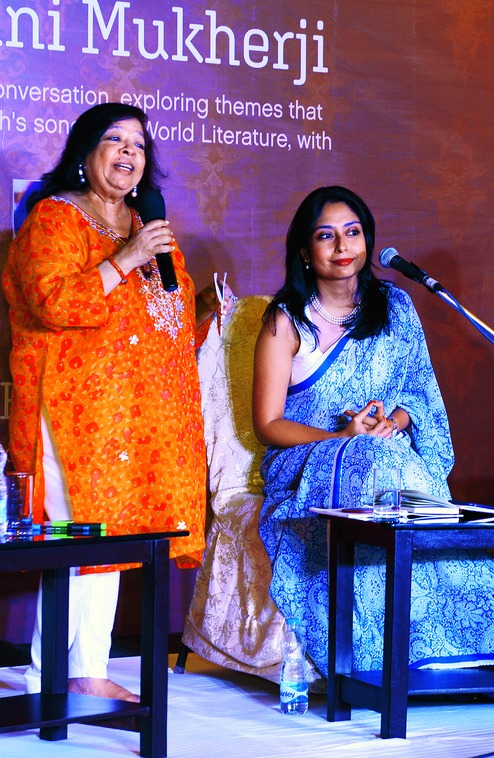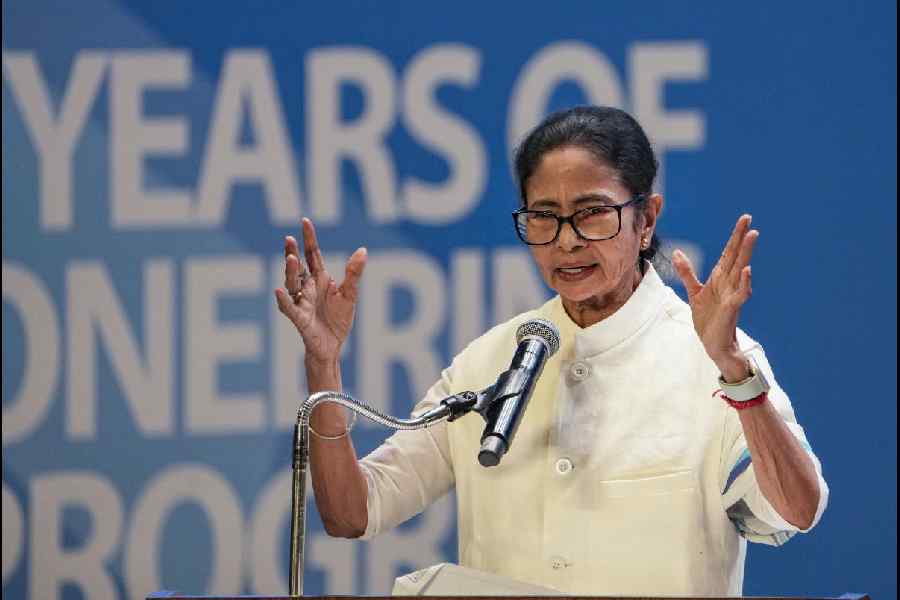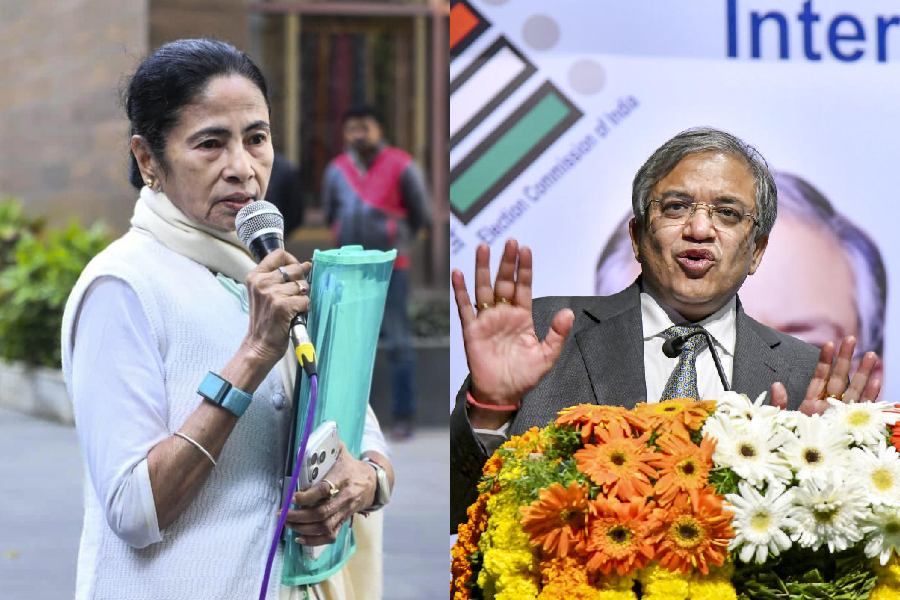
Park Street: The treatment of love and tragedy in the songs of Rabindranath Tagore and the influence of litterateurs from around the world came alive through songs, poetry and and conversation at The Bengal Club on Friday evening.
The World in Rabindranath's Voice presented by The Bengal Club, in association with The Telegraph, saw academic Julie Banerjee Mehta and singer Kamalini Mukherji present through examples how death is treated differently in Tagore's songs with references to the works of English poets.
Mehta, a professor of English literature at Loreto College, recited from Christina Rossetti's Remember and Mukherji followed it up with Tagore's Tobu mone rekho (Remember me still), parts of which were directly translated from Rossetti's sonnet.
Mukherji, who has performed extensively in India, the US, Canada, and Bangladesh, is an alumna of South Point High School and Jadavpur University, where she won the (Bill) Gates Scholarship and Gates Cambridge Scholarship, before attending St John's College, Cambridge, for a master's degree.
Her next song on the theme of death - a full-throated rendition of Jokhon porbe na more payer chinho (When my feet would cease to leave a mark) - brought out a more accepting, light-hearted approach, akin to the Romantic poets.
Mukherji's soulful presentation of Achhe dukhyo, achhe mrityu (There is sadness, there is death), which was linked to the thoughts of Metaphysical poets, presented death as a necessary phase of transition to a new beginning.
Mehta quoted from John Donne's Death Be Not Proud to point out the similarity of thought.
The programme began with references to love in Tagore songs and an invocation to William Wordsworth and Samuel Taylor Coleridge.
The evening ended with an interactive session with the club members and Mukherji performing songs on request.










